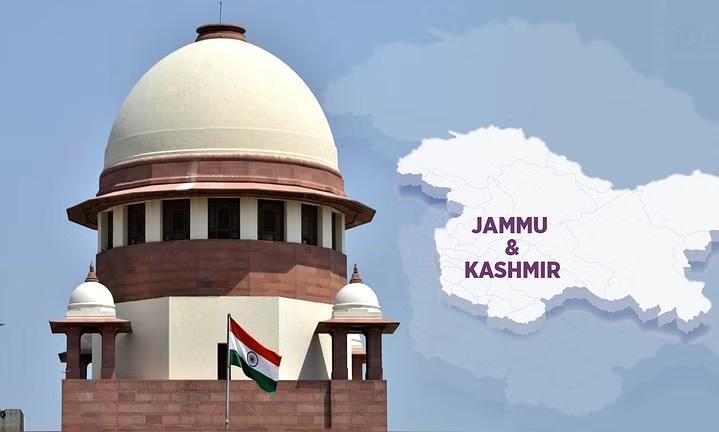
SC asks if Article 370 deemed defunct since 1957 does it mean J&K was not within ambit of Constitution
text_fieldsNew Delhi: A five-judge Constitution bench of the Supreme Court, presided over by Chief Justice of India D Y Chandrachud, engaged in a debate over the ongoing validity and implications of Article 370 with regards to the state of Jammu and Kashmir.
The bench addressed the arguments put forth by senior advocate Dinesh Dwivedi, who contended that Article 370 had ceased to operate after the dissolution of the J&K Constituent Assembly in January 1957.
Dwivedi's assertion triggered a discussion during which the Chief Justice posed essential questions about the constitutional status of the region. Chief Justice Chandrachud probed the assertion that if Article 370 were considered defunct, the Indian Constitution's development and application to Jammu and Kashmir would be halted as of January 1957.
This, he highlighted, would essentially freeze the constitutional evolution of the state and render it immune to subsequent constitutional developments in the rest of India.
The senior advocate further invoked N Gopalaswami Ayyangar's speech to the Constituent Assembly of India, suggesting that a "commitment" had been made to the people of J&K.
However, the bench was cautious not to attribute binding commitment to individual speeches in the Constituent Assembly debates, asserting that the interpretation of the Constitution required a broader perspective. Justice Khanna emphasized that once part of the nation, individuals were part of the entire nation and its constitutional framework.
Justice Kaul questioned the relevance of Article 370 if it was deemed defunct, especially given the issuance of Constitution (Application) Orders over the years. Dwivedi responded that past practices, even if previously deemed illegal, could not be justified constitutionally. He clarified that the Central government retained power over subjects in the Union List.
In response, Chief Justice Chandrachud delved into the complex implications of nullifying Article 370. He highlighted that if Article 370 were invalidated and Article 1 continued to be applicable, it would imply J&K's integral status within India, necessitating an exclusion provision in the Indian Constitution, which was not present according to Dwivedi's argument.
The Chief Justice drew attention to Article 5, which extended legislative and executive powers to all matters except those within Parliament's jurisdiction, implying the Indian Constitution's application to J&K.
The court's exploration into the nuances of these arguments underscored the intricate nature of the constitutional interpretation and its broader implications. The discussion questioned the long-standing notion of "one nation, one Constitution" and whether it was explicitly prescribed by the Constitution itself.
The examination of the Constitution (Application) Orders, their constitutionality, and their impact on Jammu and Kashmir's constitutional relationship with the rest of India added further complexity to the debate. The Court seemed poised to evaluate the historical context, legal implications, and practical consequences of accepting or rejecting the notion that Article 370 had ceased to operate.






















